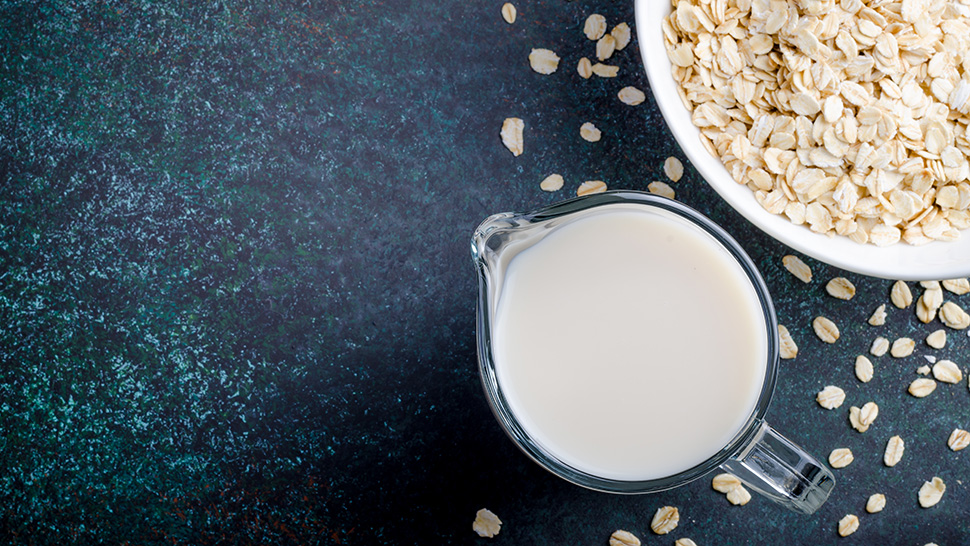The Buzz: Oat Milk
- by bonappetit
 What’s the buzz?
What’s the buzz?
Move over nut milks, there’s a new non-dairy “milk” sweeping store shelves, coffee shops, and smoothie bars.
What does the science say?
Add oat milk to the growing list of non-dairy milks everyone is obsessing over. There are oat milk yogurts and ice creams. You can even get a canned nitro cold-brew, oat-milk latte. (Don’t you feel hip even just thinking about sipping one?)
Oat milk is made by soaking then blending rolled or steel-cut oats. The blended oats are then strained through a cheesecloth, leaving any solids behind. It does retain some of the oat flavor (as expected), so don’t be fooled by anyone who tells you it’s a perfect replacement for cow’s milk.
What makes oat milk different than many of the popular non-dairy milks out there is that it doesn’t contain one of the eight major allergens, so it’s great for someone who needs (or chooses) to avoid dairy, soy, and tree nuts. However, if you have celiac disease or a gluten sensitivity, you’ll want to choose one that is made from certified gluten-free oats.
Nutritionally, oat milk contains about the same amount of calories as 2% cow’s milk, but less protein (2 to 3 grams per cup versus 8 grams in cow’s milk). One benefit is that it contains no saturated fat, and it does contain some fiber from the beta glucan found in the oats. While beta glucan may help reduce total blood cholesterol, the amount found in oat milk likely won’t move the needle, and research is still ongoing as to whether or not beta glucan found in beverages offers the same benefits as eating the whole oats. Oat milk also contains some B vitamins naturally, but lacks the calcium and vitamins A and D that cow’s milk provides; however, some brands do fortify it with these nutrients. As with other non-dairy milks, many oat milks contain added sugar and flavoring to make them more palatable, so you’ll want to read the ingredients label to limit your added sugar.
What’s the takeaway?
Like other plant-based milks, oat milk is not a one-for-one replacement for cow’s milk nutritionally. However, it’s a good non-dairy alternative for your coffee, morning cereal, or smoothie base, as long as you’re not counting on it for the nutrients that cow’s milk provides, especially protein and calcium. Look for the unsweetened variety to avoid excess sugar.
Read more about oat milk nutrition here or get the breakdown in this video.